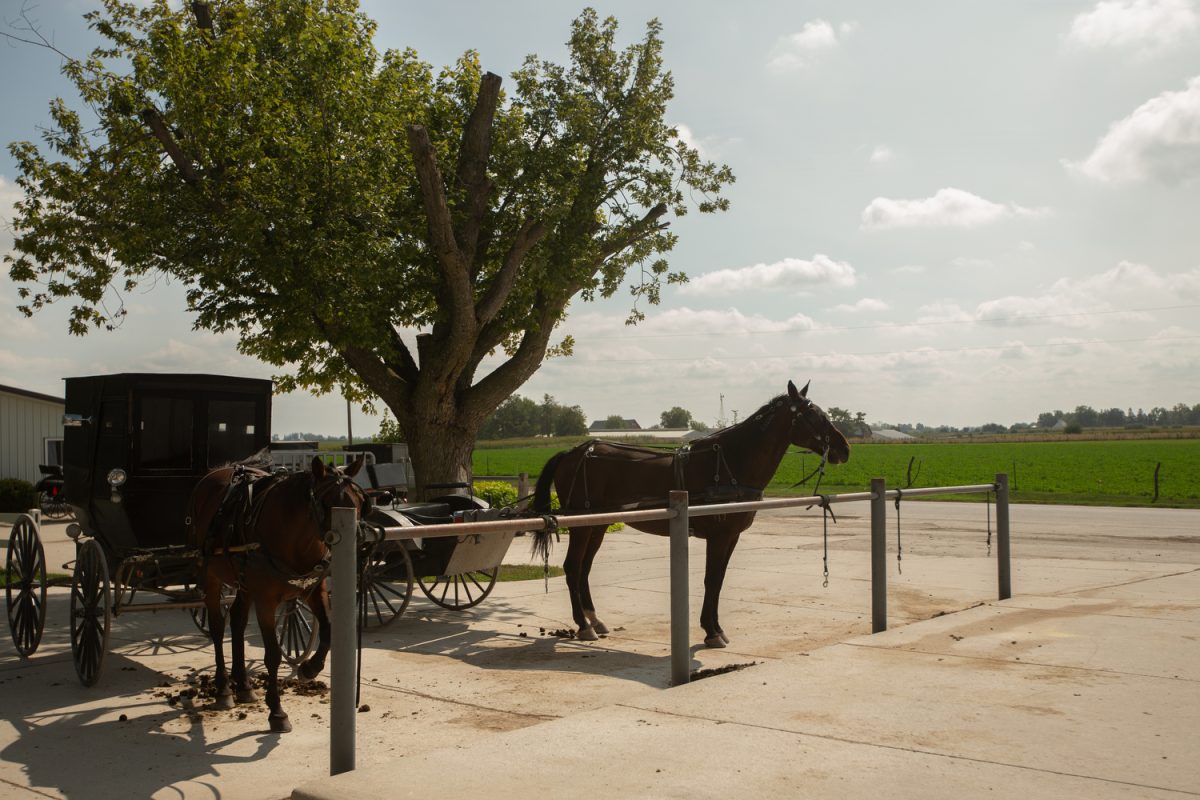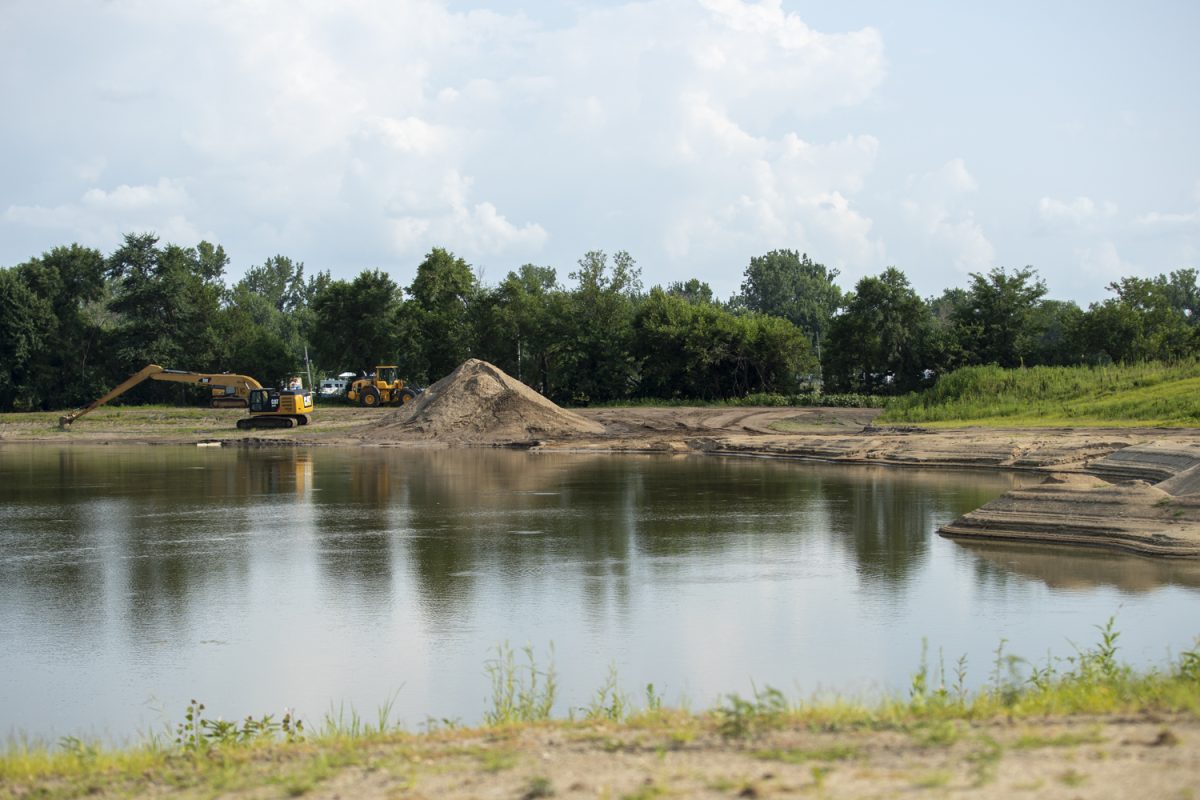Despite concerns from the Amish community, the Johnson County Board of Supervisors is moving ahead with a plan to repave a county road outside of Kalona, Iowa.
The project will resurface a portion of 540th St. S.W., which passes in front of Stringtown Grocery in Kalona, Iowa. The road will change from a chip-seal surface to an asphalt surface as part of the county’s five-year plan.
The project was approved 4-1, with Supervisor V Fixmer-Oraiz as the sole dissenter. A roughly $983,000 contract was awarded to L.L. Pelling for the project at the Sept. 28 formal session. There are about 10,200 Amish people in Iowa, according to a 2022 Elizabethtown College study.
Less than a half mile long, the project is the beginning of a larger plan involving 540th St. set for 2024 or 2025.
Ed Schlabach, a previous owner of Stringtown Grocery and a member of the Amish community, said the county is looking at the situation from a different angle than his community.
Schlabach said the chip-seal road is better for horses, and the community does not want it to be changed, especially considering the price tag attached to the project.
“Why spend the million dollars, especially when we have a horse-friendly road already?” Schlabach said.
Schlabach said his community doesn’t think the road is a wise way to spend tax dollars.
Supervisors Fixmer-Oraiz and Jon Green visited the site to meet with residents and discuss the project before voting on it.
Fixmer-Oraiz said they wanted to signal to constituents that the supervisors listened to their concerns, and further the conversation for next time.
“I didn’t feel comfortable … having just heard from residents that that was something that they had concerns about,” Fixmer-Oraiz said. “I am deeply appreciative of the work that our county engineers have done, and I also want residents to know that I try and make decisions fully informed and with a lot of their input as well.”
Green said he is sympathetic to the community’s concerns but also feels that the process progressed to a point where it was irresponsible to not move forward.
“I want to be sure that we are intentional and forward-thinking about this in the future, rather than being so reactive a day before we’re set to open the bids on a project,” Green said.
The road resurfacing project will use a new paving technique to make the road optimal for different modes of transportation, including vehicles and horses.
Ed Bartels, assistant Johnson County engineer, said this technique is unprecedented for the county in his 17 years at the county engineering office. He said the county has not found a solution to making roads better specifically for Amish buggies, but this project aims to improve roads for all vehicles and travelers.
Called “perpetual pavement,” the road project will allow for a more flexible, resilient base to allow for easier travel of cars and Amish buggies. Perpetual pavement consists of hot mix asphalt that is more oil-rich and flexible, preventing moisture intrusion, reducing cracks, and quickening the process of repaving in the future.
The paving technique will make the road less damaging to horses’ hooves, and flex instead of cracking. Road cracking is unavoidable, but perpetual pavement will crack from the top, allowing for easier corrections to the road later on.
Bartels said perpetual pavement is more economical for the life cycle of the road. When the road needs to be fixed, instead of replacing the depth of the pavement, the top of the road can be ground off and paved over.
The project will widen the road by 33 feet, allowing more space for vehicles to move around Amish buggies safely. As a part of the county’s five-year plan, the project will also lower the speed limit in the area. Bartels said the changes will allow Amish buggies to coexist with more conventional vehicles.
The start date of the project is projected to be April 2024.










